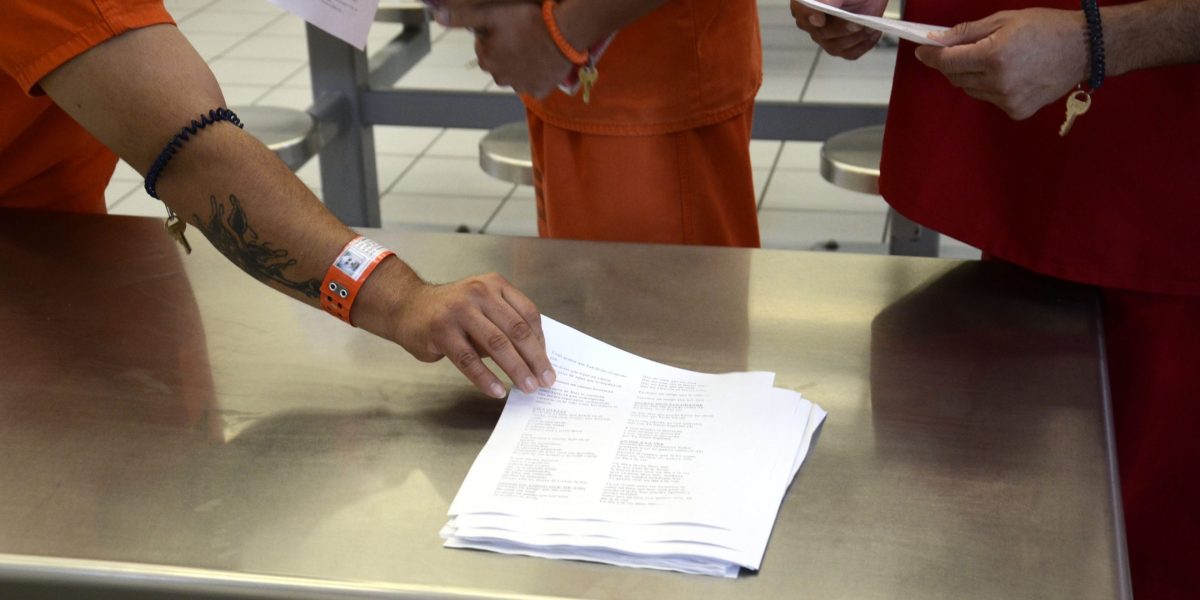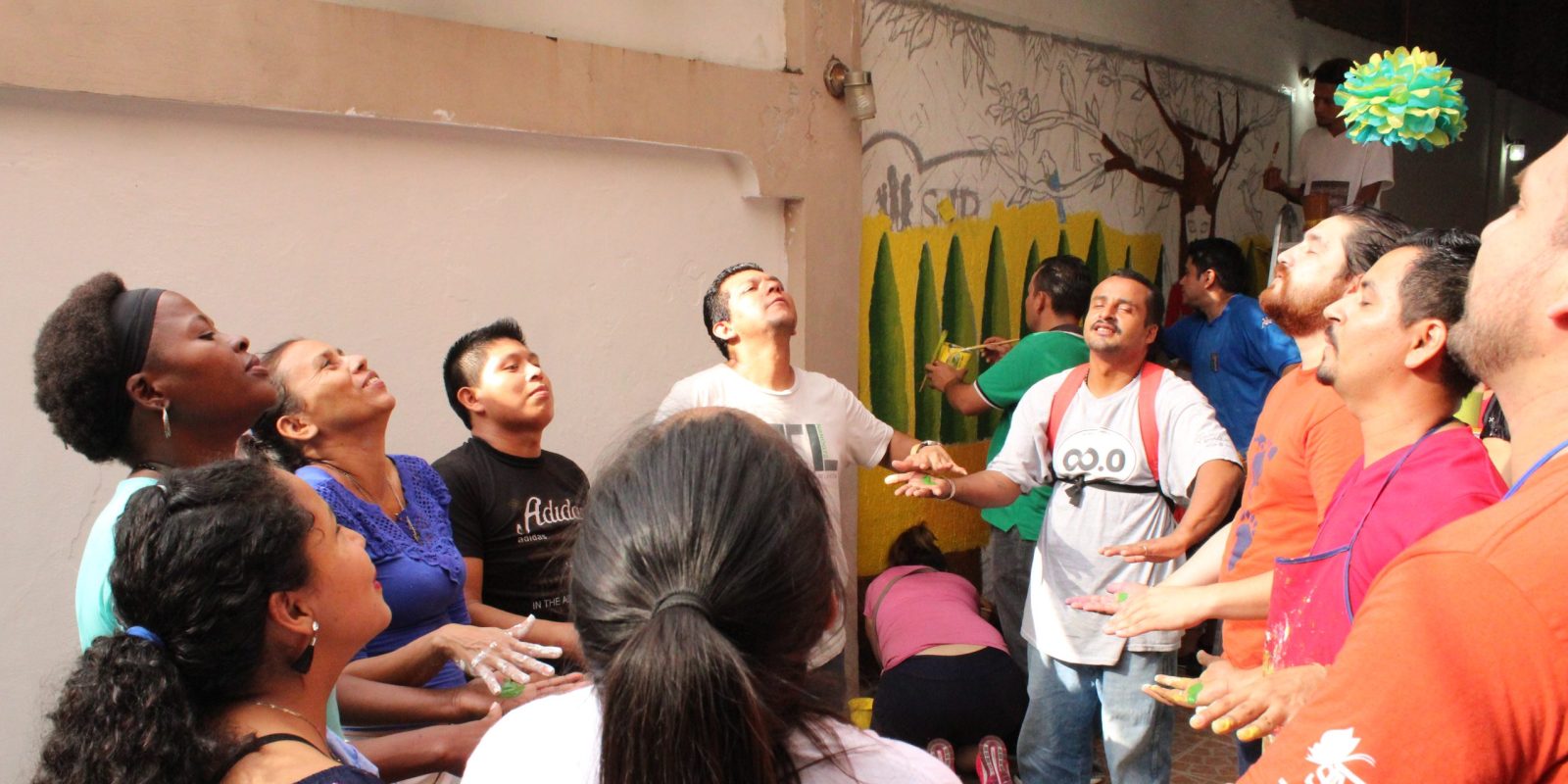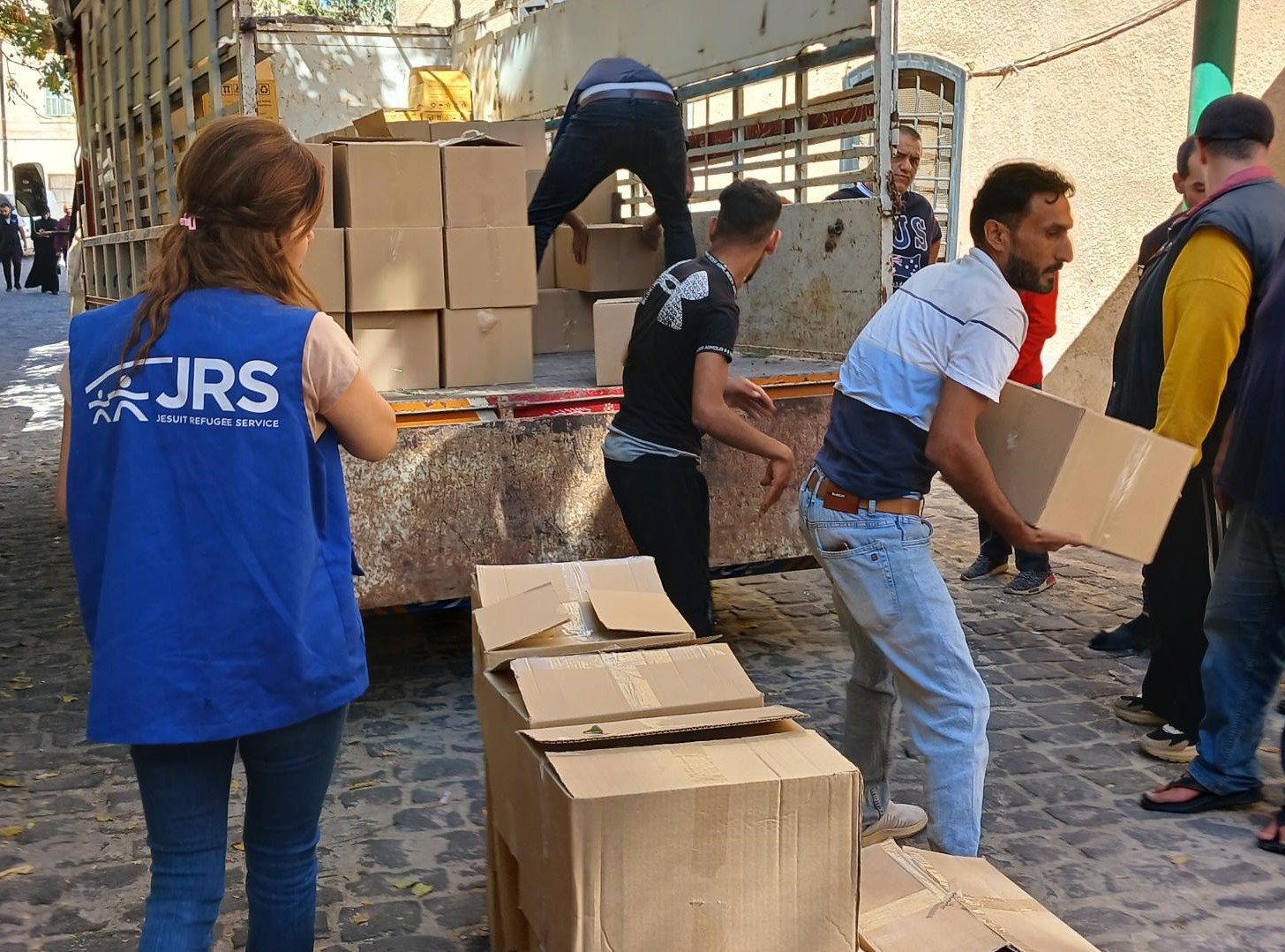JRS INSIDER: Finding God in a Detention Center Cafeteria
05 August 2024|Chloe Gunther

This story first appeared in JRS INSIDER, a monthly newsletter including stories of impact across JRS global.
In mid-July, I accompanied JRS/USA President Kelly Ryan to El Paso, Texas, to meet with our Domestic Programs team. On a Thursday afternoon, we visited Fr. Richard Sotelo, director of the JRS/USA Chaplaincy Program, at the El Paso Detention Center. JRS/USA serves in five centers around the country. We were able to attend both the Women’s and the Men’s Masses. In this month’s INSIDER, we share some of that experience.
In the early afternoon, about 75 women, half dressed in orange scrubs and half dressed in blue ones, filed into the cafeteria. Colorful mini flags from nearly every country lined the walls. Just a couple of hours earlier, the women had come to this room for a lunch of lentil soup. Now it was set up for a Catholic Mass.
The pews were the same metal cafeteria tables with small, connected stools, three on each side. The altar was simple: a podium and a folding table. The women divided up according to clothing color: blue on one side, orange on the other, the colors denoting their assigned security risk. The women sang shyly, acapella.
In this detention center, the average length of stay is 65 days. Here and in four other facilities – in Florida, Arizona, and New York – JRS/USA’s Detention Chaplaincy Program provides religious services and spiritual accompaniment as migrants endure this challenging part of their journey.
Before Mass, Fr. Sotelo and I met in his office, adjacent to the facility’s “Know Your Rights Room,” to discuss this JRS/USA program. In 1999, Fr. Sotelo’s superior sent him to El Paso to serve as chaplain at this facility after serving at a parish in San Francisco in the 1980’s and as master of novices for the Jesuits in Jamaica for part of the 1990’s.
“This work is what gets me out of bed in the morning,” Fr. Sotelo said, referencing the “Fall in Love” prayer by Fr. Pedro Arrupe, S.J., former superior general of the Society of Jesus and the founder of JRS.
The Chaplaincy Program offers a space for individuals to find solace and hope regardless of their religious beliefs. It provides for traditional observances like Catholic Mass and Jewish Shabbat services as well as religion courses and spiritual accompaniment sessions. Eleven chaplains of different faiths make up the team. They understand the importance of migrants maintaining their religious and spiritual connections. For many at the detention center, faith was one of their only forms of consistent accompaniment as they journeyed to the United States.
“Everyone here has experienced a level of trauma,” Fr. Sotelo said. Not every Catholic detainee attended the Mass, but he hopes even just the presence of the Chaplaincy Team is a source of hope.
Balancing the rules and regulations of the detention center with human needs is one of the greatest challenges, Fr. Sotelo noted. 
He shared the story of a man who became upset when officers confiscated a small satchel he had brought with him. The satchel, wrapped in plastic to keep it together, contained items the man needed to pray. Fr. Sotelo intervened, realizing the satchel was confiscated for the way it was wrapped. The Chaplaincy Team found a way to secure the satchel so it could be permitted in the facility and the man could hold onto this important piece of his religious tradition. By paying attention to details, the team’s smallest gestures can sometimes have the greatest impact.
During the homily that Thursday afternoon, Fr. Sotelo encouraged the group to use this challenging time as an opportunity to grow closer to God and put themselves on a solid path when they leave the detention center.
A few women wiped tears from their eyes as the message washed over the room. At the sign of peace, women in orange and blue mixed, exchanging handshakes, hugs, and words of encouragement and gratitude.
As I looked around the room at those who had gathered, God’s presence was palpable.
“JRS was built to go where others are not,” Fr. Sotelo said, “we do the most we can, and we do it with compassion.”


